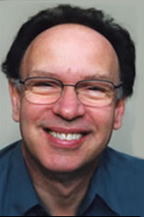Working With Academy of Television Arts and Sciences
Special Program Offers Students Lessons and Opportunities to Interview TV Insiders
February 11, 2008
By Pamela McLaren
This spring, students enrolled in “Documentary Interview” are getting a rare opportunity to not only use the archives of the Academy of Television Arts and Sciences but to contribute to its collection of interviews with directors, producers, editors, writers, cameramen and actors.
The upper-division radio-TV-film course (RTVF 327) is co-sponsored by the academy and team taught by Shelley Jenkins, lecturer in radio-TV-film, and Philippe Perebinossoff, assistant professor of radio-TV-film.
Both Jenkins and Perebinossoff have worked to establish an ongoing relationship with the Academy of Television Arts and Sciences. “Both of us are members of the academy,” said Jenkins, who also teaches “American TV” with Perebinossoff this semester. “We basically wooed them.”
Cal State Fullerton is one of only three universities that are offering this type of course that works in partnership with the academy, Jenkins noted. The value is immeasurable, she noted, for students — who gain experience and knowledge on those in their field now and previously — as well as for the academy, who receive additional interviews for the archives.
“The archives hold interviews with important figures in television as far back as they can go and was really geared up after the deaths of Lucy and Desi Arnez,” said Jenkins. “A number of interviews are now done each year with a selection of editors, directors and actors.

“The course is half research and half production,” Jenkins said. “I teach the students how to research, organize, and prepare for interviewing and producing a documentary film.”
Jenkins, who has taught documentary courses before, says this course is different because it focuses on the interview. “We work on the skill set it takes to get someone to open up on camera. Some things that are crucial are most often overlooked, like correct spelling of the interviewee’s name, correct pronunciation, making eye contact with the person. And I can’t stress enough the importance of research.”
The academy has arranged for important figures to be available for students to interview on video later this semester, said Jenkins.
“Those videos are then co-owned by the student and the academy,” the Cal State Fullerton alumna added. “By the end of the course, students can say that they shot something for the academy and include it on their demo reel as proof."



